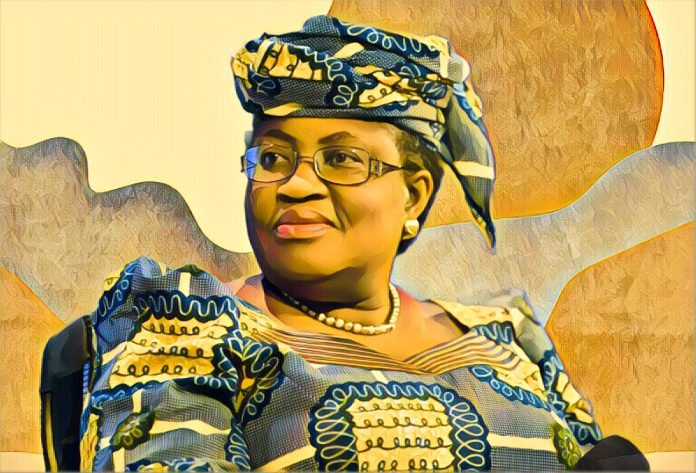In a decisive push for inclusive global trade, World Trade Organization (WTO) Director-General Ngozi Okonjo-Iweala advocated for increased trade finance access for small enterprises, emphasizing its critical role in integrating these businesses into global supply chains.
Her remarks came during the recent International Monetary Fund and World Bank annual meetings in Marrakech, Morocco.
“Addressing the trade finance gap is pivotal in fostering participation in global trade, particularly for small traders and women-led enterprises,” Okonjo-Iweala asserted, pointing to the stark findings of WTO-IFC studies in the West African and Mekong regions.
According to a report by This Day Live, These studies uncovered substantial hurdles these groups face, including a daunting 40% finance application rejection rate and prohibitive costs.
Highlighting the disparity, the Director-General noted that “while advanced economies see 60-80% of trade supported by finance, it’s a mere 25% in these regions.” She emphasized the transformative potential of bolstering this figure, referencing WTO economists’ projections: “Increasing trade finance coverage to 40% could catalyze an eight percent surge in annual trade flows.”
In her call to action, Okonjo-Iweala celebrated the developmental banks’ supportive strides during the COVID-19 crisis but pressed for more concerted efforts. “Your collective input equates to a formidable $40 billion trade finance. We must channel this strength into further empowering traders,” she stated.
She remarked that half of the global trade operates through supply chains, so enhancing supply chain finance availability is crucial.
“Our research, including an impending study on the Mekong region, highlights a critical local supply chain finance dearth, placing undue financial strain on lower-tier, local producers,” Okonjo-Iweala added.
Makhtar Diop, International Finance Corporation (IFC) Managing Director, commended the WTO-IFC synergy on trade finance, pledging the IFC’s continued commitment to scaling trade and supply chain finance solutions.
“Trade financing sometimes surpasses direct financial investments in impact. It’s an investment in its own right, crucial for companies in low-income nations needing working capital,” Diop clarified.
The session, enriched by insights from major Multilateral Development Banks (MDBs) like the African Development Bank and the Asian Development Bank, fostered discussions on capacity building, bridging trade finance gaps, and enhancing local supply chain financing.
In conclusion, Okonjo-Iweala lauded the strides by trade finance stakeholders, calling for amplified efforts within the WTO-MDB network. She urged a broadened focus encompassing supply chain finance, green finance, and capacity building, essential for a more inclusive trading landscape.



